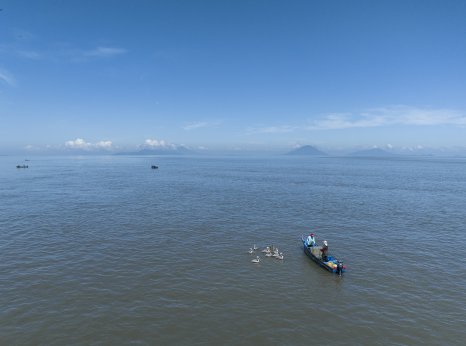Honduras: Environmental Bill Threatens Human Rights

The Special Bill for the Promotion of Investments through the Efficiency of Environmental Licensing Processes is very general and vague, and all types of so-called investment or development projects seem to fit into the proposed simplified process, which could result in a bypassing of the ordinary environmental licensing process.
The lack of an adequate mechanism for the right of individuals, communities and groups to participate in decision-making processes that may affect their rights is especially concerning.
Honduran authorities have been unable to define a clear course for the protection of the right to a healthy environment and those who defend it over the last years. In February 2024, Congress passed Decree 18-2024 that ensures the effective protection of all protected areas in Honduras and reestablished the original layout of the Carlos Escaleras National Park in Tocoa, department of Colón. However, it has not been implemented yet.
Defenders and organizations have regularly been to courts to denounce crimes and human rights violations linked to investment projects, and pay a high price, even with their lives, for these complaints. According to the NGO Global Witness, Honduras tops the world list of countries with the most murders of environmental defenders per capita. Attacks mainly occurred in the broader context of disputes and human rights violations related to mining projects, land-tenure insecurity, and violations of the rights of Indigenous Peoples and Afro-descendants.
This was the case of the murder of Lenca defender Berta Cáceres in 2016, after denouncing irregularities in the granting of licenses for the Aguas Zarca hydroelectric project and violations against Indigenous Peoples. In May 2024, two persons were convicted of fraud and another one of usurpation of functions and falsification of documents in this case.
Similarly, on 14 September 2024, the defender Juan López was killed after he and other members of the Municipal Committee in Defense of the Public, Common Goods had been denouncing for years violations to their rights to clean water and other human rights related to a mining project operating in the Carlos Escaleras National Park. In May 2025, the Attorney General Office pressed charged against three people for the alleged crimes of illegal exploitation of natural resource and aggravated damages with regards to a megaproject in the National Park and surroundings. In a parallel criminal proceeding, the general secretary of the municipality of Tocoa faces accusations of having allegedly altered a consultation act that allowed the granting of the environmental licenses.
Honduras is not part of the Regional Agreement on Access to Information, Public Participation and Justice in Environmental Matters, also known as the “Escazu Agreement”.